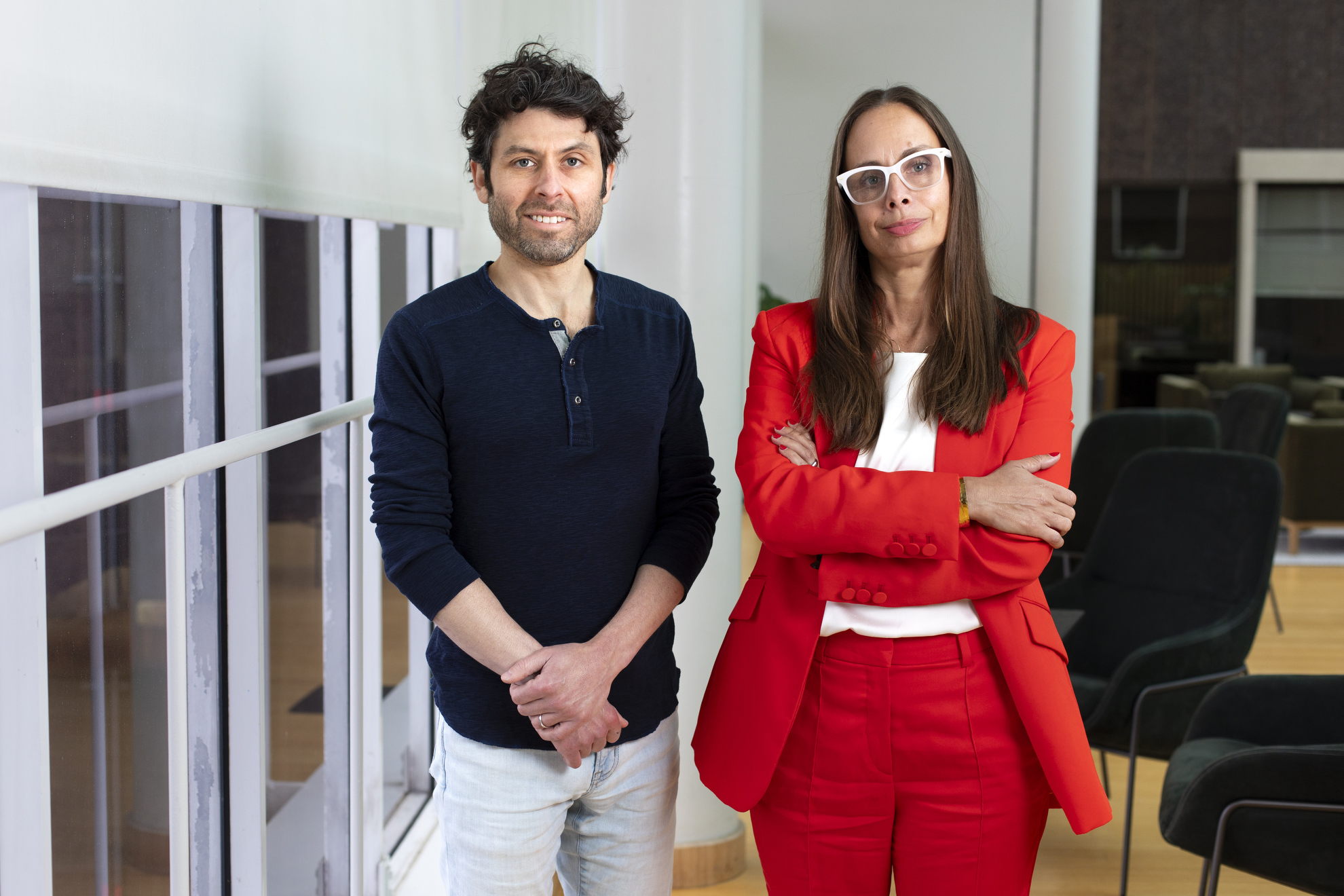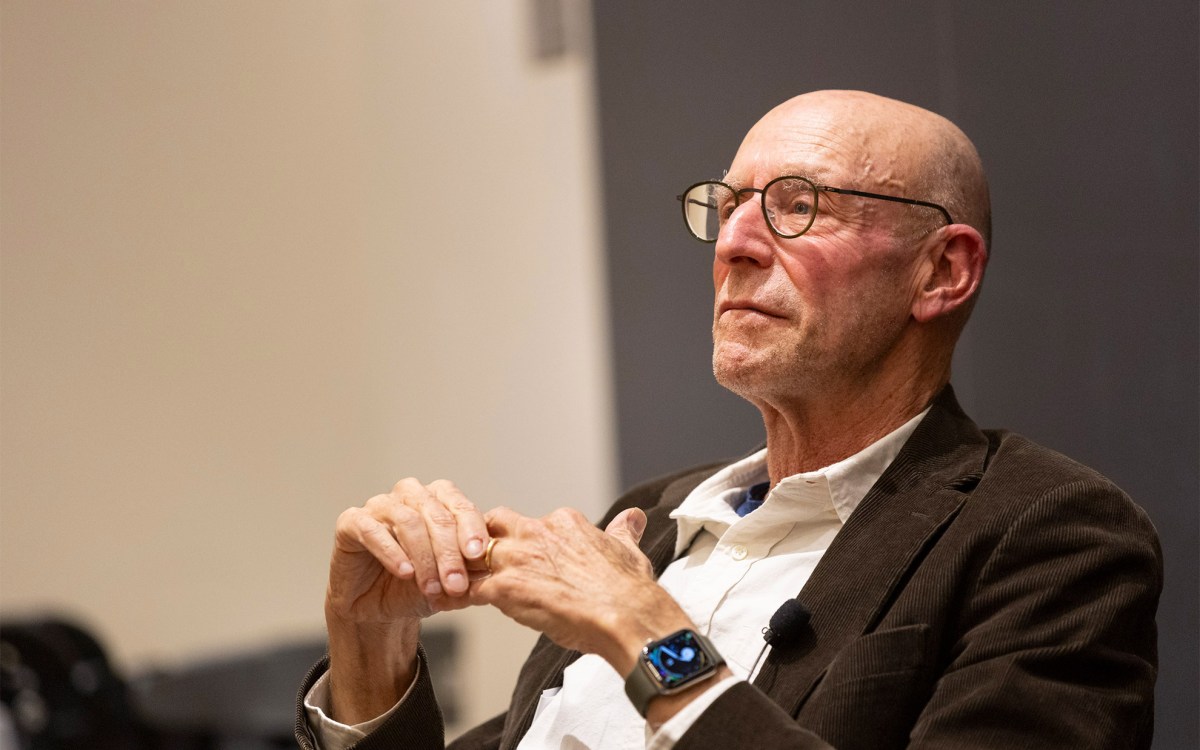
Reading skills — and struggles — manifest earlier than thought
New finding underscores need to intervene before kids start school, say researchers
Experts have long known that reading skills develop before the first day of kindergarten, but new research from the Harvard Graduate School of Education says they may start developing as early as infancy.
The study, out of the lab of Nadine Gaab, associate professor of education, found that trajectories between kids with and without reading disabilities start diverging around 18 months of age — not at age 5 or 6 as previously thought. The finding could have serious implications for policy, said Gaab, because it underscores the need for early identification of struggling readers, early intervention, and improved early literacy curricula in preschools.
“Our findings suggest that some of these kids walk into their first day of kindergarten with their little backpacks and a less-optimal brain for learning to read, and that these differences in brain development start showing up in toddlerhood,” said Gaab. “We’re currently waiting until second or third grade to find kids who are struggling readers. We should find these kids and intervene way earlier because we know the younger a brain is, the more plastic it is for language input.”
Gaab and co-authors Ted Turesky, Elizabeth Escalante, and Megan Loh worked with a sample of 130 study participants, the youngest being 3 months old. Eighty were from the Boston area, and 50 were from a sample in Canada. For the past decade, the researchers tracked participants’ growing brains from infancy to childhood, and their relationship to literacy development, by using MRI scans. The sample group was supplemented with scans and behavioral measures from the Calgary Preschool MRI Dataset.

Ted Turesky and Nadine Gaab.
Veasey Conway/Harvard Staff Photographer
There are other studies that track brain development in children, but this is the only longitudinal brain study in the world that tracks brain development from infancy to childhood with comprehensive literacy outcome measures, said Gaab and Turesky.
“Those other studies had bigger sample sizes than we did, but they were much more focused on typical maturation of the brain,” said Turesky. “We didn’t see other studies that started in infancy, tracked brain maturation in the same set of kids for as long as we did, and included academic outcome measures.”
The researchers also aimed to learn more about how brains learn in general, and how they learn to read in particular. Reading is a complex skill that involves the early development of brain regions and interaction of various lower-level subskills, including phonological processing and oral language. The brain bases of phonological processing, previously identified as one of the strongest behavioral predictors of decoding and word reading skills, begin to develop at birth or even before, but undergo further refinement between infancy and preschool, said Gaab. The study showed further support for this by finding that phonological processing mediated the relationship between early brain development and later word reading skills.
“Most people think reading starts once you start formal schooling, or when you start singing the ABCs,” said Gaab. “Reading skills most likely start developing in utero because the fundamental milestone skill for learning to read, which oral language is part of, is the sound and language processing that takes place in the uterus.”
“Our findings suggest that some of these kids walk into their first day of kindergarten with their little backpacks and a less-optimal brain for learning to read, and that these differences in brain development start showing up in toddlerhood.”
Nadine Gaab
Besides MRI scans, the study involved psychometric assessments of children, including language and general cognitive abilities, home language, and literacy environment, to examine how those variables influence development.
“For the longest time, we knew that kids who struggle with reading show different brain development,” said Gaab. “What we didn’t know was whether their brains change in a response to struggle on a daily basis in school, which then leads to differences in their brains. Or is it that kids start with a less-optimal brain for learning to read the first day of formal schooling, which then most likely causes reading problems. Our results, among others in the lab, suggested that it’s that kids start their first day of school with a less-optimal brain for learning to read and that these brain differences start long before kindergarten.”
Gaab points to her study, which was funded by a grant from the National Institutes of Health, as an example of how basic science can inform both educational practice and policy. She and her team were set to continue tracking the children in the study through middle school and high school, for nearly five more years, but the recent federal funding cuts have made that uncertain.
“The first four years of reading development is oral language development,” she said. “But the ultimate goal of learning to read is to comprehend what you read. Our study looked all the way to how they learn to read words. We were hoping to track them another five years to look at their text comprehension.”
Their grant application to continue tracking those children has received a fundable score at NIH, but due to the termination of NIH grants to Harvard, it likely won’t be awarded, Gaab said.
“It’s really sad because these kids will go out of the study and will go on to college, and they will be lost forever,” said Gaab. “It would provide such important information to measure at least their reading comprehension, even if we don’t see their brains again, in middle school and early high school. The families of the children in the study are already asking us: ‘When is the next time we’re supposed to come in?’ We’re going to need to tell them that probably this was it.”





